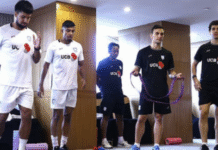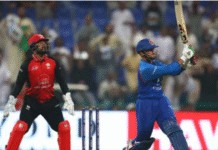
The year 2020 in the sporting calendar had been a remarkable one due to the challenges facing sporting events all over the world. Not since the World War II has there been a more severe case of disruptions to the sporting calendar as elite-level sports found out that it was not immune to the escalation of the pandemic and the consequences it brought. If fans were the integral part of sporting events, 2020 became the year when fans became peripheral to continuation of the major events, at least in terms of their presence in stadiums.

From February-March, the realisation dawned that sports simply could not go on as it had done under normal circumstances. As warning signs flashed, Champions League fixtures started being played behind closed doors before UEFA postponed all fixtures with one particular Atlanta-Valencia game apparently fuelling contagion in Italy due to presence of supporters. By March, all major sporting events had been postponed owing to the pandemic. Novak Djokovic, who won his eighth Australian Open title in January, quickly became the bad boy of the tennis world as an ill-fated Adria Tour in June — one he himself organised — acquainted tennis with the realities of the pandemic and dented tennis’s planned return.

As sports succumbed to the chain reaction of the pandemic, the sporting scenario completely changed worldwide. A year that had begun with much promise for Bangladesh in the sporting front, with the under-19 cricketers winning the World Cup in England, became almost a separate reality. By March, including cricket, all domestic sporting events halted and the young cricketers’ development was hampered significantly while the national team’s home series against Australia and New Zealand were postponed indefinitely along with domestic competitions.
As sports faced a bleak future, it also ushered hope and resilience as it so often does. The German Bundesliga returned in May but the most significant factor was the fact that there would not be any fans in major sporting events. With other major European football competitions too restarting in June, the likes of Cristiano Ronaldo or Lionel Messi returning to action gave people something to cherish amid lockdowns. The unity shown, the gargantuan task of setting up bio-secure bubbles — while it still felt like a delicate, fragile thing to consider sports amid the pandemic — and the logistics required while there was no map to use as a guideline for such a scenario, will remain exemplary as sports slowly returned.
International Cricket slowly began too as West Indies became the first team to tour England during the pandemic in July.
Meanwhile, the passing away of the footballing legend Diego Maradona would leave its mark on 2020 along with the death of Kobe Bryant while on the domestic front the passing away of former national star Badal Roy was a big loss for the country’s football.
As an unrelenting year comes to an end, sports fans are left with the longing to return to the old days even as new strains of the virus can put significant denture to those plans. Players too have felt that vacancy in the stadiums. Maybe the transition can best be surmised when Messi says: “It’s horrible to play without fans, it’s a very ugly sensation. Seeing no-one in the stadium is like a training session and it is very tough to really get going at the start of a game.”









